From Failure to Fame
The Curious Case of Remdesivir
Remdesivir, a supposed antiviral drug developed by Gilead Sciences, has been at the center of considerable debate. Originally tested for Ebola, it was deemed too toxic and failed to show significant efficacy in those trials. Despite this, it was repurposed for use during the COVID-19 pandemic, a situation many argue was contrived.

Remdesivir, known chemically as GS-5734 with the molecular formula C27H35N6O8P. It is a nucleotide analog prodrug, meaning it mimics the building blocks of RNA and undergoes metabolic conversion within the body to become the active drug.
Supposed Mechanism of Action
Cellular Uptake and Conversion:
Remdesivir enters cells and is metabolized into its active triphosphate form (GS-441524). This active form mimics adenosine triphosphate (ATP), one of the natural nucleotides used in RNA synthesis.
Inhibition of RNA Polymerase:
The active form of Remdesivir competes with ATP for incorporation into the viral RNA by the RNA-dependent RNA polymerase (RdRp), which is crucial for viral replication.
Once incorporated into the growing RNA strand, Remdesivir causes premature termination of RNA synthesis, effectively preventing the virus from replicating its genetic material and hindering the production of new viral particles. This can help to reduce the viral load in the body and potentially ameliorate the severity of the infection.
Clinical Use
Remdesivir has been used under emergency use authorizations and has been approved in some countries for the treatment of COVID-19. Remdesivir was first granted Emergency Use Authorization (EUA) by the U.S. Food and Drug Administration (FDA) on May 1, 2020. It was later given full FDA approval on October 22, 2020, under the brand name Veklury. The approval was based supposedly on clinical trial data demonstrating some efficacy in treating COVID-19.
Its efficacy and safety profile have been subjects of significant debate, especially given its mixed results in clinical trials. Some clinical trials have shown that Remdesivir can reduce the time to recovery in hospitalized COVID-19 patients, but its impact on overall mortality and severe disease progression remains uncertain.
In the U.S. Remdesivir was approved under the brand name Veklury to supposedly create a distinct commercial identity separate from its experimental phase. This practice helps differentiate the drug from its experimental versions, aids in market branding, and simplifies regulatory documentation. By adopting a unique brand name, Veklury supposedly enhances recognition among healthcare professionals and patients, supports marketing efforts, and ensures clarity in legal and regulatory contexts. But is that really why they changed the name???
Controversies and Criticisms
Ebola Trials:
Remdesivir was initially tested for Ebola virus but was found to be less effective and more toxic compared to other treatments. This history has contributed to skepticism about its use for COVID-19.
The Ebola virus seemed to disappear as quickly as it appeared and the world was on to the next Germ Theory scaretactics and urgent needs for therapeutics and vaccines for the invisible terrorists.
COVID-19 Efficacy:
The World Health Organization (WHO) issued a conditional recommendation against the use of Remdesivir in hospitalized COVID-19 patients, citing insufficient evidence that it improves survival or other outcomes.
Global Concerns Over Counterfeit Remdesivir: Authenticity and Safety Issues
Concerns about counterfeit or falsified Remdesivir emerged globally during the COVID-19 pandemic, revealing serious issues with the drug's integrity. In countries like India, Pakistan, Bangladesh, Nigeria, the United Arab Emirates, and Mexico, fraudulent versions of the drug were reported. These counterfeit products often looked legitimate, complicating efforts to identify them. The global challenges with Remdesivir highlight significant issues not only with its efficacy and safety but also with verifying the authenticity and origin of such critical medications. This situation raises concerns about how anyone can be assured that any of these products are what they claim to be or that they come from credible sources.
Viruses Have Never Been Isolated or Shown to Cause Infection
Given that viruses have never been isolated or shown to cause infection, the effects of remdesivir on the body would be markedly different:
Cellular Mechanism
Nucleotide Analog:
Remdesivir is designed to mimic ATP, a natural nucleotide in cells. If it enters human cells, it will be incorporated into human RNA by cellular RNA polymerases.
This incorporation disrupts normal RNA synthesis, leading to premature termination of RNA chains during transcription.
Effects on the Body
Disruption of Cellular Functions:
Human cells continuously synthesize RNA to produce proteins and other vital molecules. Interference with this process disrupts normal cellular functions.
Premature termination of RNA synthesis affects the production of essential proteins, leading to cellular stress or damage.
Toxicity:
The inhibition of normal RNA polymerase activity leads to toxic effects, as essential cellular processes are disrupted. This results in cellular apoptosis (programmed cell death) or necrosis (uncontrolled cell death).
Severe Side Effects:
Liver Damage: Elevated liver enzymes indicate liver stress or damage. This can lead to liver dysfunction or failure.
Kidney Impairment: Remdesivir has been associated with kidney damage, which can result in acute kidney injury or chronic kidney disease.
Gastrointestinal Issues: Patients may experience nausea, vomiting, and diarrhea.
Cardiovascular Problems: Potential side effects include hypotension (low blood pressure) and other cardiovascular issues.
Respiratory Issues: Respiratory failure and other breathing problems have been reported.
Systemic Toxicity: The widespread impact on cellular functions can lead to multiple organ failure and severe systemic toxicity.
Manufacturers and Market Presence
Remdesivir, under various brand names and produced by multiple companies, has been distributed widely. Gilead Sciences granted licensure agreements to several companies, allowing them to produce and sell Remdesivir under various brand names in different regions. This strategy aimed to expand global access to the drug while managing supply during the pandemic. As a result, it’s estimated that over 10 million doses of Remdesivir were produced globally, generating approximately $4 billion to $5 billion in revenue.
It is unclear if all the brands selling Remdesivir have this agreement with Gilead Sciences. Here’s an overview of its versions that could be found and the global context that may not be comprehensive:
Gilead Sciences
Brand Name: Veklury
Generic Name: Remdesivir
Approval Dates:
U.S.: October 22, 2020 (FDA)
EU: July 3, 2020 (EMA)
Canada: July 27, 2020 granted emergency use authorization by Health Canada
Approval Method: Emergency use authorization followed by full approval based on clinical trial data.
Current Status: Veklury continues to be used globally under various regulatory approvals, though its use has decreased as other treatments have emerged.
Jubilant Life Sciences
Brand Name: Jubi-R
Generic Name: Remdesivir
Approval Date: July 2020
Approval Method: Emergency Use Authorization by the Drugs Controller General of India (DCGI).
Current Status: Jubi-R was used primarily in India. Its continued use depends on regulatory decisions and the availability of newer treatments.
Cipla
Brand Name: Cipremi
Generic Name: Remdesivir
Approval Date: July 2020
Approval Method: Emergency use authorization by national health authorities.
Current Status: Cipremi has been used in India. Its usage is subject to ongoing evaluation and alternative treatment options.
Hetero Labs
Brand Name: Covifor
Generic Name: Remdesivir
Approval Date: July 2020
Approval Method: Emergency use authorization by the DCGI.
Current Status: Covifor was used in India and other regions. Its use may have declined as other therapies have gained prominence.
Mylan (Viatris)
Brand Name: Desrem
Generic Name: Remdesivir
Approval Date: July 2020
Approval Method: Emergency use authorization by relevant authorities.
Current Status: Available in India and other regions, but its use is subject to changes based on new data and treatment options.
Ferozsons Laboratories/BF Biosciences Limited (BFBL)
Brand Name: Remidia
Generic Name: Remdesivir
Approval Date: July 2020
Approval Method: Emergency use authorization by the Drug Regulatory Authority of Pakistan (DRAP).
Current Status: Remidia has been used in Pakistan. Its current status depends on regulatory updates and treatment advancements.
Beximco Pharmaceuticals
Brand Name: Bemsivir
Generic Name: Remdesivir
Approval Date: July 2020
Approval Method: Emergency use authorization by the Directorate General of Drug Administration (DGDA).
Current Status: Bemsivir was used in Bangladesh and its ongoing use depends on the evolving treatment landscape.
Hetero Labs
Brand Name: Remtedaj
Generic Name: Remdesivir
Approval Date: July 2020
Approval Method: Emergency Use Authorization (EUA) by the Drugs Controller General of India (DCGI).
Country of Use: Primarily in India.
Current Status: Remtedaj was utilized in India during the early phases of the COVID-19 pandemic. Its continued use would depend on the availability of new treatments and regulatory reviews.
Zydus Cadila (Cadila Healthcare)
Brand Name: Remdac
Generic Name: Remdesivir
Approval Date: June 2020
Approval Method: Emergency Use Authorization (EUA) by the Drugs Controller General of India (DCGI).
Country of Use: Primarily in India.
Current Status: Remdac was used in India as part of the COVID-19 treatment strategy. Its use would be subject to updates based on the emergence of new treatments and ongoing clinical evaluations.
Brand Name: MAVER
Generic Name: Remdesivir
Approval Date: Unknown
Approval Method: Unknown
Country of Use: Unknown
Current Status: Unknown
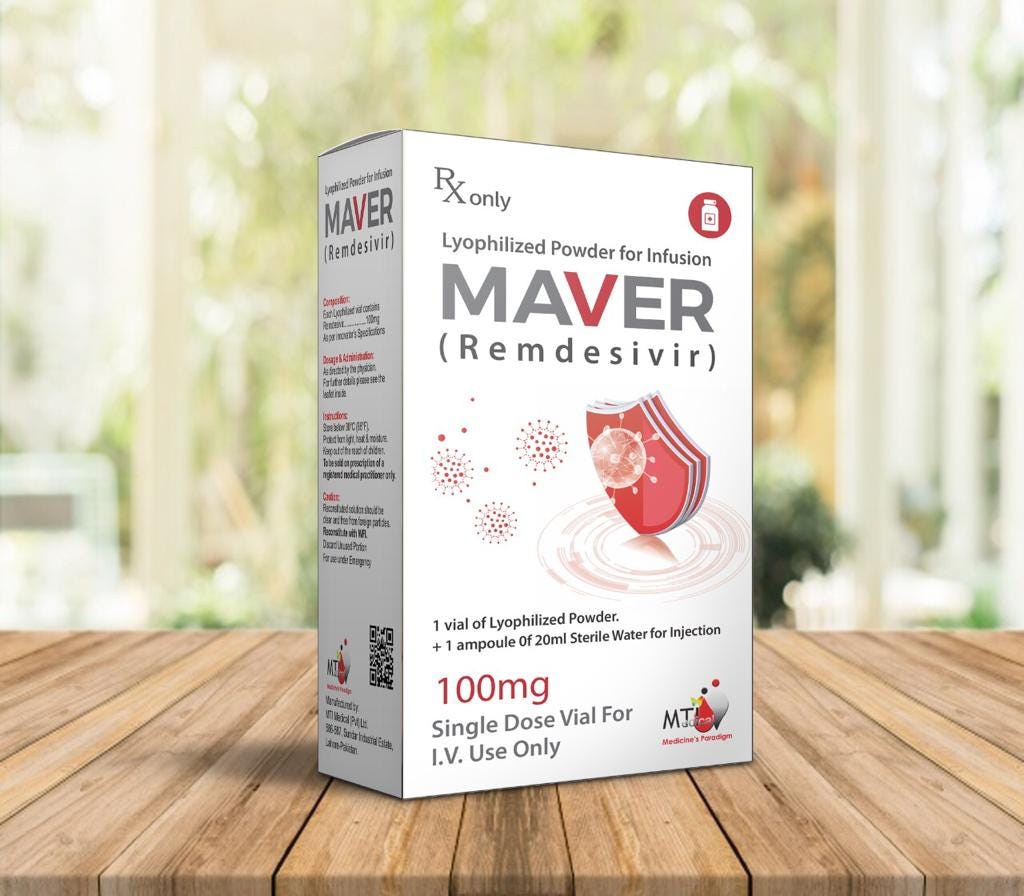
Image from https://mtipk.com/index.html 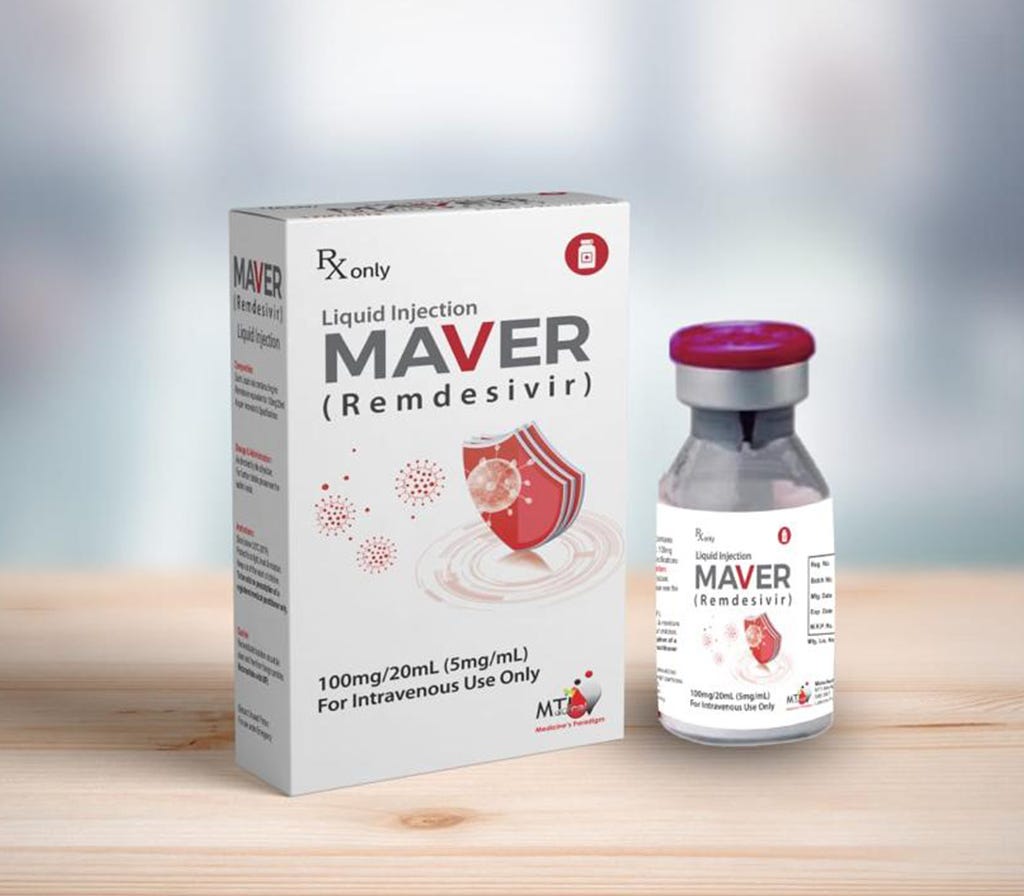
Image from https://mtipk.com/index.html
Nabiqasim Industries
Brand Name: IVIREM
Generic Name: Remdesivir
Approval Date: Unknown
Approval Method: Unknown
Country of Use: Primarily thought to be used in Pakistan
Current Status: Unknown

Image from https://remdesivir.com.pk/
Rameda
Brand Name: Rameda Remdesivir
Generic Name: Remdesivir
Approval Date: Unknown
Approval Method: Unknown
Country of Use: May be in Egypt but unknown
Current Status: Unknown
Bio-Labs
Brand Name: Rivona
Generic Name: Remdesivir
Approval Date: Unknown
Approval Method: Unknown
Country of Use: Unknown
Current Status: Unknown
EIPICO
Brand Name: Remaist
Generic Name: Remdesivir
Approval Date: Unknown
Approval Method: Unknown
Country of Use: Unknown
Current Status: Unknown
Why Remdesivir Was Deemed Too Toxic for Ebola
During trials for Ebola, Remdesivir was found to have significant safety concerns. Key issues included:
Hepatotoxicity: The drug was associated with elevated liver enzymes and liver damage, making it unsafe for broader use.
Kidney Toxicity: Some studies indicated potential renal toxicity, which raised concerns about its suitability for patients with pre-existing kidney conditions.
High Dosage Risks: The doses used in Ebola trials were high, exacerbating side effects and toxicity.
These issues led to Remdesivir being considered too risky for use in Ebola treatment, and it was subsequently shelved for that purpose.
The WHO Solidarity Trial and Remdesivir’s Role
The WHO Solidarity Trial, launched on March 18, 2020, was a global effort to test various treatments for COVID-19. Remdesivir was one of the drugs evaluated, but the trial’s findings were revealing:
Limited Efficacy: The trial showed that Remdesivir had only modest benefits in terms of recovery time and did not significantly impact mortality rates or improve patient outcomes in a meaningful way.
Lack of New Alternatives: Despite the Solidarity Trial’s results, Remdesivir remained one of the few treatments widely accepted and used for COVID-19 during the initial phases of the pandemic.
Critical Takeaway
Remdesivir is supposedly a chemically complex “antiviral” that disrupts RNA synthesis. Since viruses have never been isolated or shown to cause infection, remdesivir would not serve any therapeutic purpose and would be harmful due to its effects on human cellular RNA synthesis. This leads to severe side effects, including liver damage, kidney impairment, gastrointestinal issues, cardiovascular problems, respiratory issues, and systemic toxicity.
Remdesivir’s path from a failed Ebola treatment to a contentious COVID-19 therapy sheds light on the ongoing issues within global health practices and regulatory decisions. Its use, despite previous failures and a lack of substantial benefits demonstrated in trials, reflects the complex dynamics of public-private pandemic response and drug approval processes.











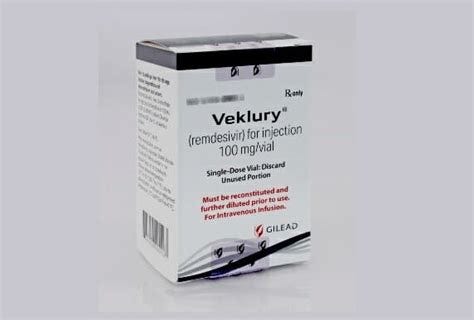
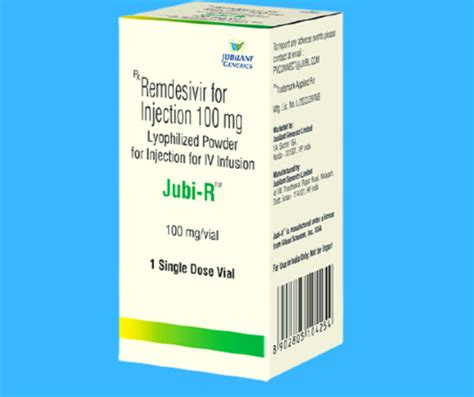
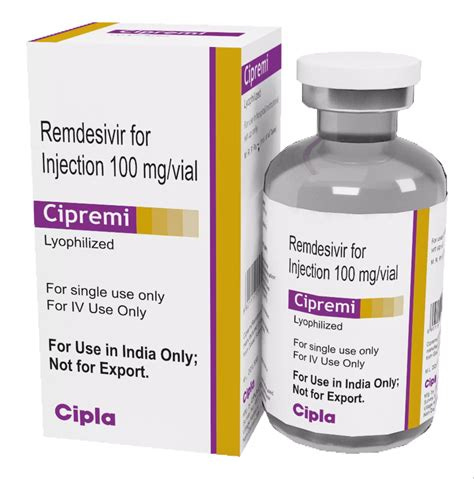
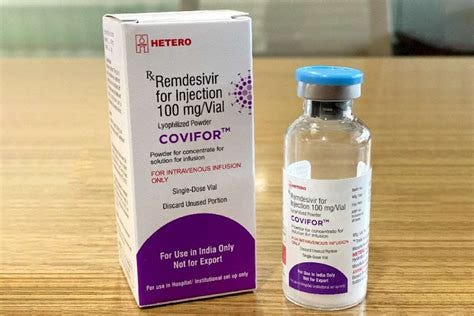
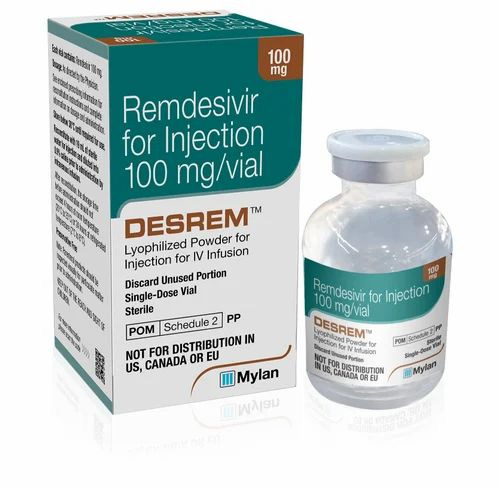
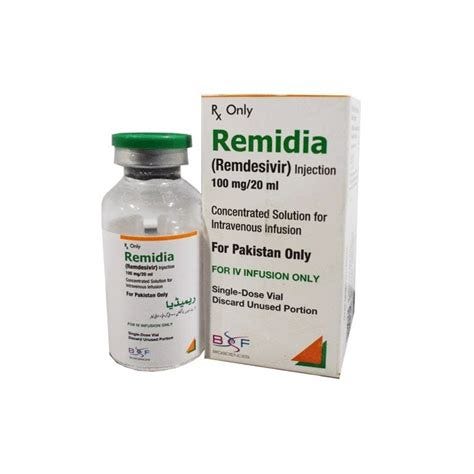
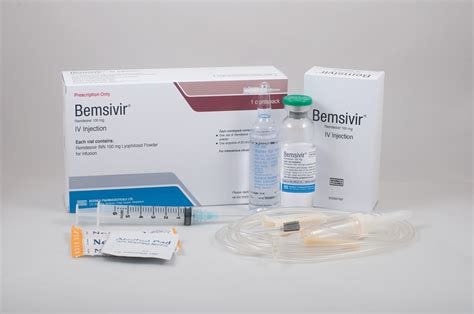
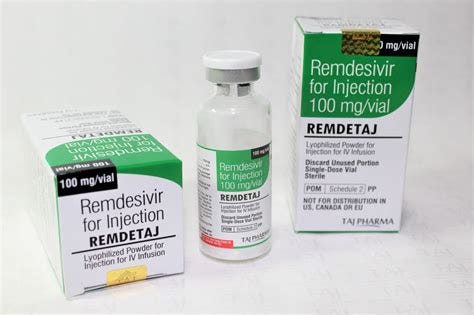
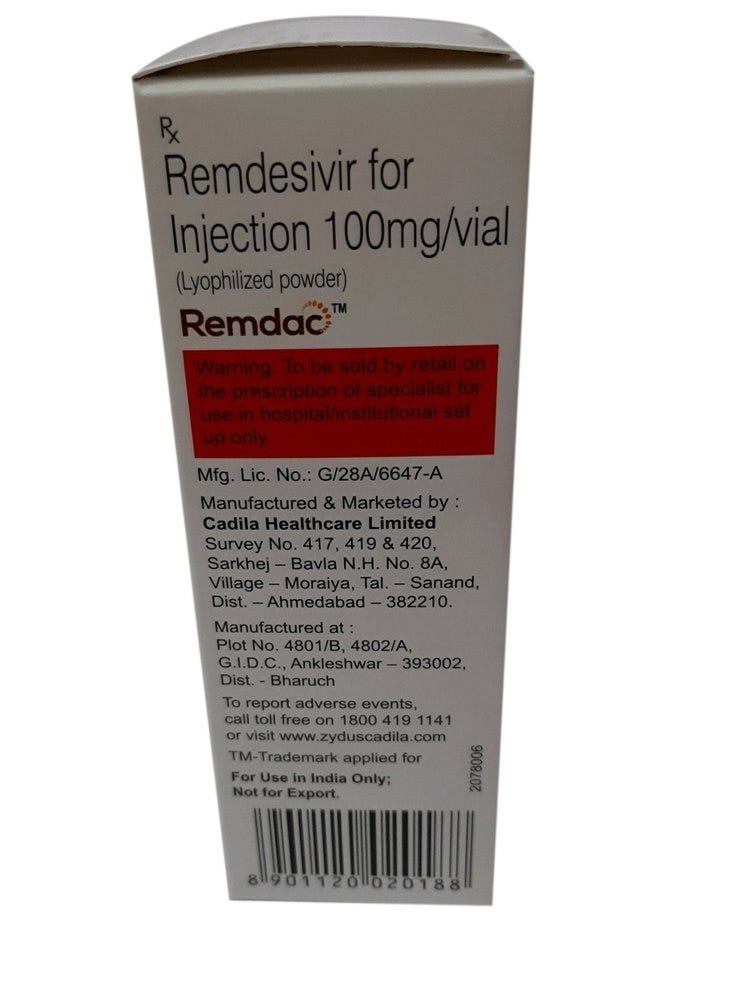
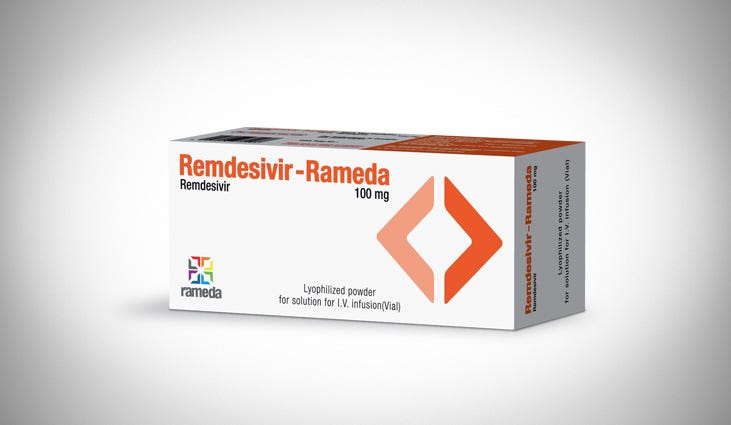

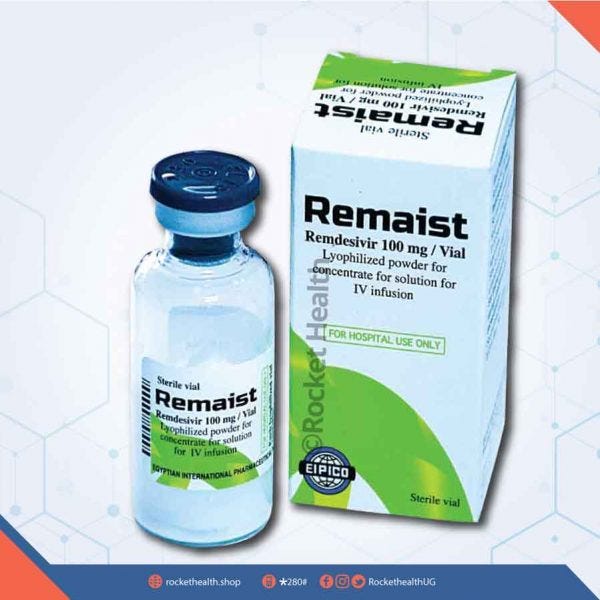



Paul Elias Alexander, employed by WHO, recommended Remdesivir in 2020.
Deaths to 31 March 2024 > 2,480
https://geoffpain.substack.com/p/remdesivir-deaths-was-endotoxin-a
creepy, some of these biotech companies with Biblical names like Gilead